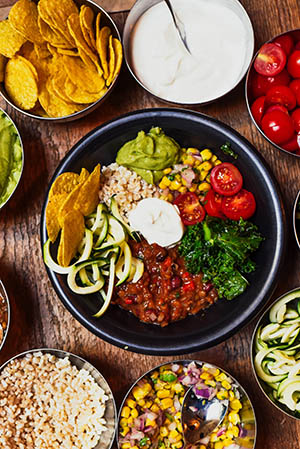It is well-accepted by health experts that a plant-based (vegan) diet can provide all the nutrients we need.
Both the Dieticians of Canada and the U.S. Academy of Nutrition and Dietetics agree that appropriately planned plant-based diets are healthful, nutritionally adequate, may provide health benefits in the prevention and treatment of certain diseases, and are appropriate for all stages of life.1,2
The World Health Organization reports strong evidence that a diet low in meat, eggs and dairy, while also higher in fruit and vegetables, was associated with a lower risk of heart disease, type 2 diabetes, stroke and various types of cancer.3 The volume of evidence that vegan diets have major health benefits is enormous.4,5 A plant-based diet rich in fibre, folic acid and antioxidants is also associated with lower cholesterol, blood pressure and body fat.6






